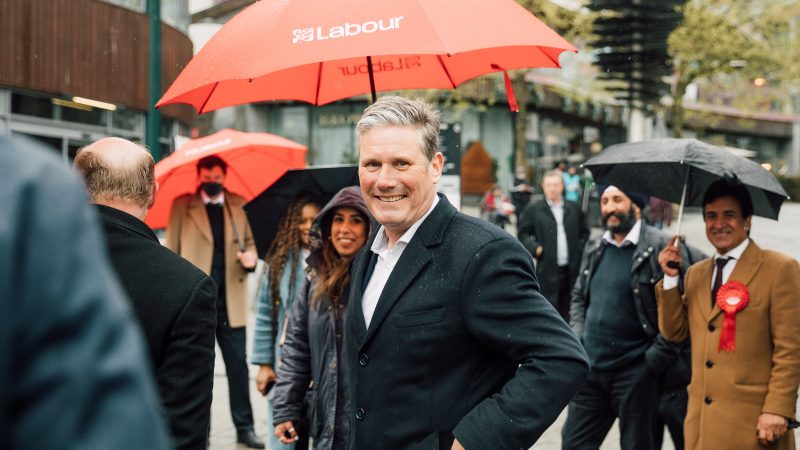
Keir Starmer will shortly launch the five “missions” that will form the “backbone” of Labour’s election manifesto. In a speech in Manchester this morning, the Labour leader will announce the missions – described by the party as the “key pillars” of a Starmer-led government – each of which will come with “clear, measurable outcomes”. The missions focus on five themes – the economy, the NHS, crime, climate change and education – and Starmer’s speech today will centre on the first. He told BBC Breakfast this morning that Labour would seek to ensure that the UK has the “highest sustained growth in the G7”, stressing: “Sustained is the really important word in that.” The Labour leader gave a small preview of the areas the other missions will focus on, telling viewers: “We also need to make sure the NHS is fit for the future. We need to make our streets safe. We need to make sure that we remove the barriers to opportunity for every child everywhere. And we want to be a green, clean power superpower country.”
Labour said the missions would be “unashamedly long term”, building on Starmer’s criticism of the “short-term mindset” of Westminster in his new year speech last month. During that speech, the Labour leader announced his plan to “modernise central government” and ensure it is “driven by clear, measurable objectives” or “national missions”, which he said “will be the driving force of the next Labour government” and “will [push] us on to a better future and a decade of national renewal”. Starmer’s speech came the day after Rishi Sunak’s own new year speech, in which the Prime Minister set out five key priorities for his government – specifically halving inflation over the next year, growing the economy, ensuring national debt is falling, reducing NHS waiting lists and passing new laws to stop small boats crossing the Channel. The Labour leader rejected Sunak’s speech as “commentary without solution” and is expected during today’s speech to draw contrasts between his long-term programme and the “sticking-plaster politics” of the Prime Minister.
Starmer will argue that the missions will bring “greater stability and certainty”, telling attendees: “Instead of a government chopping and changing all the time, blowing with the wind, the missions will be anchor points to show clearly the direction of travel.” Commenting ahead of the speech, a Momentum spokesperson highlighted the “series of cast-iron pledges” Starmer made during the Labour leadership contest, which they said now “lie in tatters”. The spokesperson declared: “To avoid charges of serial dishonesty and ensure a Labour government actually faces up to the scale of the wreckage it will inherit from the Tories, Starmer should change course, listen to party conference and lay out a bold vision of a transformed country which delivers for the many, not the few.”
Starmer has faced considerable criticism for backtracking on the promises he made during the leadership contest, including on his pledges to support common ownership of energy and back the abolition of tuition fees. In January, he said there would be more use of the private sector in healthcare under a Labour government, having previously pledged to “end outsourcing” in the NHS. In his speech today, he is expected to double down on the role of the private sector more generally, saying: “I’m not concerned about whether investment or expertise comes from the public or private sector – I just want to get the job done.” It is not just the Labour left that has noticed this inconsistency. Sunak has repeatedly attacked Starmer on his changing policy stance at Prime Minister’s Questions, declaring that the Labour leader will “break promises left, right and centre” and accusing him of having the “free movement of principles”. There will likely be many within Labour watching Starmer’s speech today with similar levels of scepticism.
Sign up to LabourList’s morning email for everything Labour, every weekday morning.



More from LabourList
‘Labour council candidates – it’s tough, but all is not lost’
‘Labour won’t stop the far right by changing leaders — only by proving what the left can deliver’
‘Cutting Welsh university funding would be economic vandalism, not reform’